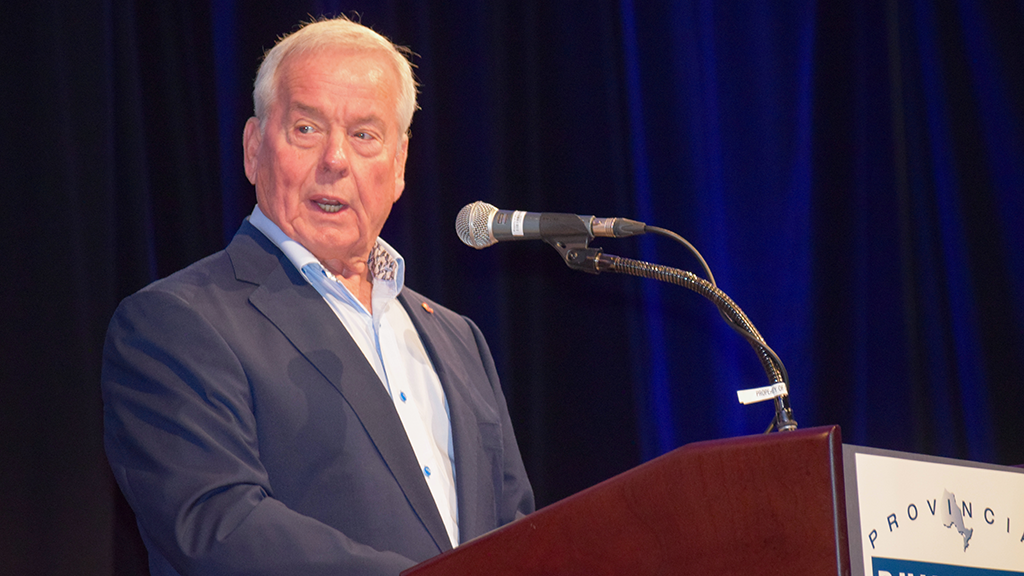The Construction Employers Council of Ontario (CECCO) has assured the Ontario Building Trades it is committed to being a better partner at a critical time for both councils, with negotiators representing the province’s unionized ICI sector preparing to hammer out a new set of three-year contracts for 25 trades.
ICI contracts expire April 30, 2025 and both the Building Trades and CECCO are striving to avoid the chaos of the bargaining season in 2022. During that cycle, amidst rising inflation, there were five ICI strikes and nine times union members voted to reject proposed settlements.
CECCO executive director Wayne Peterson said the council of employer agencies is better equipped to ensure labour stability, support fair settlements and also grow the unionized sector’s market share following CECCO’s adoption of a new strategic plan.
“We are working directly with the Building Trades on a lot of different projects for the betterment of the unionized industry,” Peterson said in a recent interview.
Advancing unionized construction
“The health of the unionized construction industry depends in large part on the working relationship that the employer bargaining agents (EBAs) and labour management have with each other. If they have good working relationships, they can get issues resolved, we can move the industry forward. If they don’t have those good working relationships, everything falls apart.”
The strategic plan commits CECCO to work to be an effective member and industry partner strengthening management’s position; improve member engagement through regular communication, surveys and feedback mechanisms to understand their needs; and advance unionized construction by fostering industry collaboration.
The 22-member council pledged to build strong relationships with key industry stakeholders, including contractors, owners and government agencies, address common challenges and opportunities, and also continue to develop the relationship with the Building Trades.
The imperative to work with the Building Trades goes beyond the expectation that the negotiating partners will not “shoot themselves in the foot” during the next five months of negotiations, Peterson said.
“This is long-term,” he said. “While we work together with the Building Trades on various things, we’ve not been strong. We’ve not been the partner that they needed.”
CECCO and the Building Trades addressed the threat to the unionized sector’s market share of work during the union’s annual convention in October. Peterson said CECCO supported a resolution encouraging the Building Construction Trades Council of Ontario to “work closely with affiliates and employer construction associations to improve the competitive advantage of small and medium-sized enterprises.”
The Building Trades, CECCO and the Ontario Construction Secretariat have worked together to amass resources to ensure the bargaining sessions go smoothly, Peterson said. One priority during the cycle will be for the participants to identify and correct misinformation. A lot of that came from a younger cohort of workers in 2022 and was spread on social media, he said.
Coming out of COVID, Peterson said, the cost of living was “going through the roof” with announcements each month during a three-month span, “just when we’re right in the heart of negotiations.
“It was very hard for the union negotiating committee to try and keep up with a small minority of members, but a group that was very vocal.”
One concern this cycle is that the electrical power sector will be negotiating at the same time as ICI.
That sector last bargained five years ago, Peterson said, so its members will be keen to “catch up” with raises reflecting post-COVID cost hikes.
The ICI sector already negotiated contracts that accounted for inflation in 2022, he remarked.
Peterson said CECCO has to exert discipline among its members to ensure they do not work in “silos” but rather that the spirit of collaboration reflected in the strategic plan is respected.
“We’re just starting,” he said. “As we see different people come into the heads of the various EBAs, you get a chance to make a fresh start with some of them. We’ve got to get the message across to labour and management that the health of unionized construction depends on us working together.”



Recent Comments